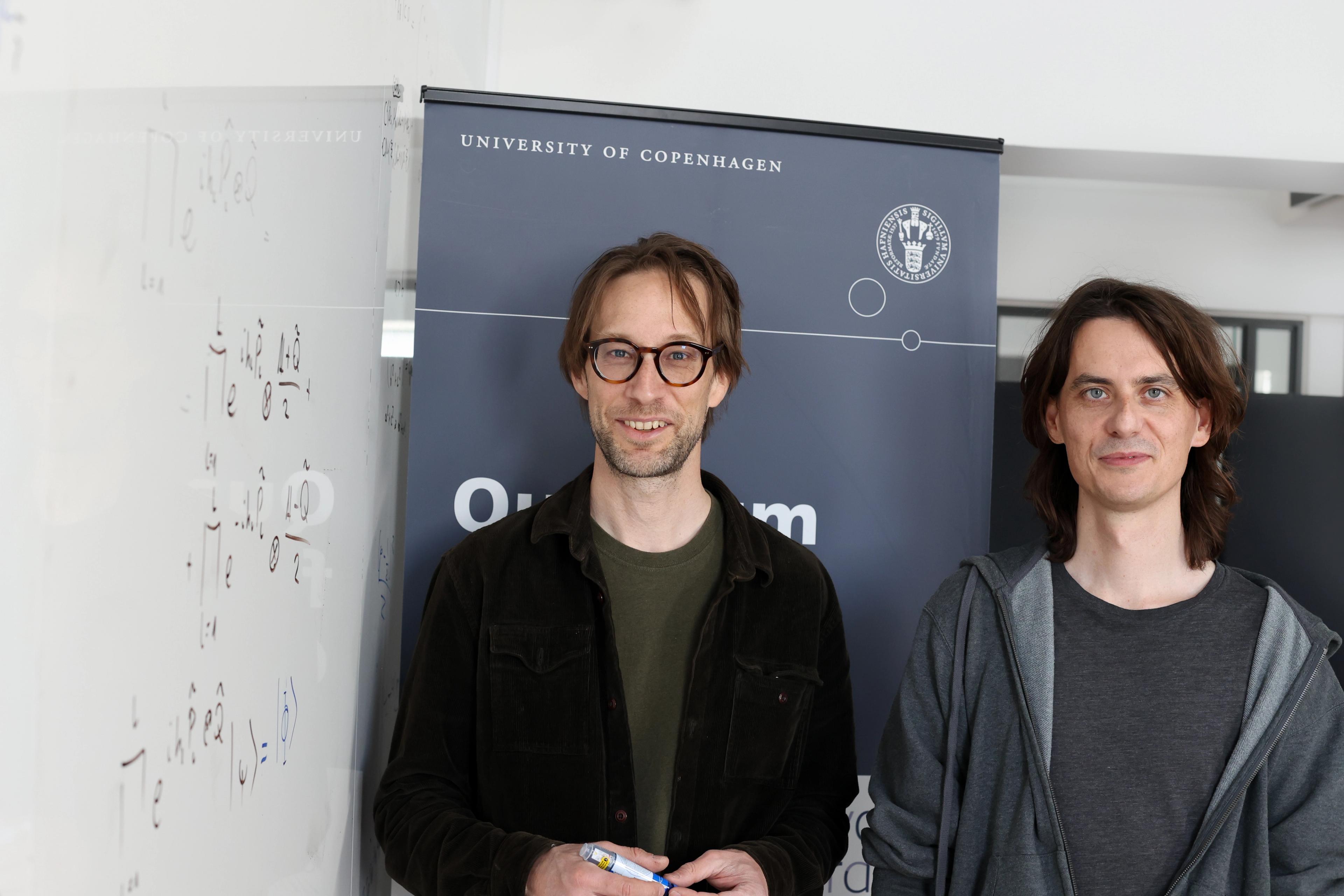Quantum Researchers Break New Ground with the Gefion Supercomputer

Groundbreaking simulations of a 40-qubit quantum computer have been successfully conducted using the AI supercomputer Gefion. This is the result of an exciting collaboration between the University of Copenhagen (KU) and the Danish Centre for AI Innovation (DCAI),
Led by Professor Mathias Christandl and Postdoctoral Researcher Marek Miller from The Quantum for Life Centre, Department of Mathematical Sciences KU, this pioneering work has significantly advanced the development of quantum software by providing crucial insights through simulations impossible to achieve on conventional computers.
Watch a short video featuring Professor Mathias Christandl and Post doc Marek Miller, and insights from inside the simulation work:
Unveiling the Power of Quantum Algorithms
Quantum computers operate on quantum bits, or qubits, capable of existing simultaneously in states of zero and one. This quantum property exponentially expands computational possibilities, promising breakthroughs in fields such as chemistry and biology. However, since practical quantum computers remain under development, robust simulation platforms like Gefion are necessary to test quantum algorithms at scale.
"We were able to simulate a perfect, noise-free 40-qubit quantum computer," explained Professor Christandl." Such a simulation demands vast amounts of memory to store the quantum states, making it essential to use a powerful supercomputer like Gefion."
Achieving Unprecedented Efficiency
Using Gefion, the researchers discovered their algorithms performed significantly better than initial theoretical estimates, achieving efficiency improvements by a factor of more than 100. According to Postdoctoral Researcher Marek Miller, the simulations were crucial to understanding the practical resource demands of quantum computations.
"Scientifically, we learned a lot," Miller emphasized. "Our simulations showed quantum algorithms are much more affordable than previously thought, which is critical for future quantum computing applications."
Breakthrough in Drug Discovery
Another notable achievement was the development of a simulation tool capable of accurately simulating the docking of an anti-cancer drug.
"The quantum algorithm that we simulated with Gefion will be part of a larger computational pipeline for better understanding drug-target binding," noted Professor Christandl. "This breakthrough has the potential to significantly accelerate drug discovery processes."
Bridging Quantum and Classical Computing
An integral outcome of the collaboration was deeper insight into the synergy between quantum computing and traditional supercomputing infrastructures. Researchers anticipate future quantum computers will function alongside supercomputers, enhancing rather than replacing existing computational technologies.
"Working with Gefion allowed us to explore how quantum computers might interact with supercomputers," noted Professor Christandl. "This experience is vital as quantum computers in the future will likely operate as co-processors within supercomputing systems."
DCAI CEO Nadia Carlsten emphasizes the importance of collaborations like this one: "This achievement demonstrates the powerful synergy between AI and quantum computing. By harnessing AI to simulate quantum algorithms, we can explore new frontiers faster than ever before. It’s a glimpse of how these two technologies, working together, will drive the next wave of scientific and technological breakthroughs."
A Quantum Leap Forward
The KU researchers highlight the instrumental role of the support they got from the Gefion team. "The onboarding was smooth, and the support was fantastic, especially when it mattered most," said Miller.
With these successful simulations, KU researchers have not only validated the potential of their quantum algorithms but also set the stage for more ambitious quantum computing projects.
"Quantum computing will transform technology," Miller concluded. "We will see applications emerge that we can't even imagine today. Gefion is helping us bridge that gap to the future."
Facts
The project is a collaboration of the Quantum for Life Centre with researchers from ETH Zurich, MIT, and from the Department of Biology and the NQCP (Novo Nordisk Quantum Computing Programme) at University of Copenhagen. The article “phase2 Full-State Vector Simulation of Quantum Time Evolution at Scale” is available here: https://arxiv.org/abs/2504.17881
About The Quantum for Life Centre
The Quantum for Life Centre is an interdisciplinary research centre funded by the Novo Nordisk Foundation. By combining research in quantum physic, mathematics, chemistry and data science, the goal of the centre is to develop strategies for the quantum simulation of biomolecules, and to show proof-of-principle demonstrations of their main functioning on atom-based experimental platforms.